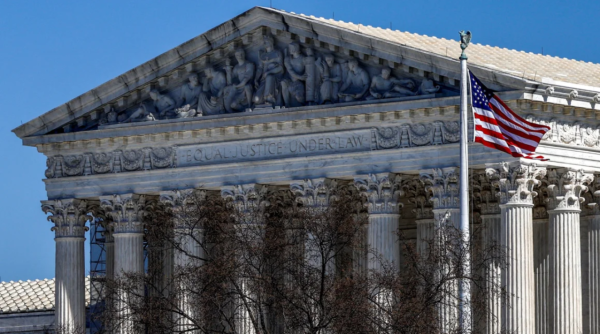Summer’s over for Congress, but budget deadlines keeps heat on
September 7, 2015
Congress returns Tuesday from its August recess to confront a series of fiscal deadlines that, if blown, could shut down parts of the government, cripple the building and maintenance of the nation’s highways or hinder the country’s ability to borrow money.
After spending most of the year kicking the fiscal can down the road, the House of Representatives and the Senate must pass measures to keep the federal government funded beyond Sept. 30, keep the Highway Trust Fund going beyond Oct. 29, and increase the nation’s borrowing limit by the end of October or early November.
These acts used to be routine functions of government that were done without fanfare. But in today’s hyper-partisan political atmosphere—even more hyper with the 2016 presidential campaigns underway—approving these measures have become high-wire acts fraught with political drama.
“We used to have regular order, now we have regular chaos,” said Robert Bixby, head of the Concord Coalition, a bipartisan government watchdog group. “It’s becoming routine.”
Here are some key budget deadlines that lawmakers must deal with in the coming months.
SEPT. 30: GOVERNMENT SHUTDOWN?
The federal government runs out of money at the end of the month unless Congress passes a legislation to keep the cash flowing. House Speaker John Boehner, R-Ohio, and Senate Majority Leader Mitch McConnell, R-Ky., say they don’t want a government shutdown, but avoiding one won’t be easy.
In July, 18 House Republicans vowed not to support any government funding measure that includes federal funding for Planned Parenthood in the wake of controversial videos that allegedly show members of the organization discussing the sale of fetal parts. Planned Parenthood says the videos were distorted and denies the allegations.
McConnell, in a recent television interview, suggested that the Planned Parenthood funding battle is unwinnable until a new, presumably Republican, president occupies the White House.
“The president made it very clear he’s not going to sign any bill that includes defunding Planned Parenthood, so that’s another issue that awaits a new president, hopefully with a different point of view about Planned Parenthood,” McConnell said.
But some conservatives believe that if a Planned Parenthood funding fight produces a shutdown, the public will blame Democrats, not Republicans, for it.
“If the president and the Democrats think it’s more important for Planned Parenthood to get your tax dollars than to fund the rest of the government, then they will be to blame for any shutdown that occurs,” said Ken Cuccinelli, president of the Senate Conservatives Fund.
Meanwhile, Senate Democrats and the White House are pushing another issue that could potentially trigger a shutdown.
They are pressing for an increase in federal spending by scaling back mandatory cuts called sequestration. Congressional Democrats have blocked appropriations bills in the upper chamber.
“The Senate Democrats have a big enough number to prevent us from doing things,” McConnell told Kentucky’s WYMT television. “They prevented us from doing any of the bills that appropriate money for the government, thereby forcing a negotiation when we go back in after Labor Day.”
OCT 29: DEAD END FOR HIGHWAYS?
In July, Congress approved a three-month, $8 billion patch that kept federal highway funds flowing to the states through the end of October. Lawmakers are supposed to negotiate a bill that lasts five or six years so states can plan long-term road and bridge projects.
But that hasn’t been done since 2005, and if they don’t do it by the end of this year, it might not happen until after the presidential election. States, meanwhile, have put numerous projects on hold because of the uncertainty, drawing the protests of business groups and governors.
The Senate did pass a bill before the recess funding the Highway Trust Fund for three years. But the House refused to take up the measure, which included a provision to revive the Export-Import (EXIM) Bank.
For decades, the bank provided loans, credit insurance and loan guarantees to U.S. exporters and foreign buyers to finance the export of U.S. products.
The expiration of the bank’s charter on June 30 was greeted by conservatives who view the EXIM bank as corporate welfare. They don’t want to see it revived.
NOVEMBER: DEBT
CEILING DUEL?
The government officially hit the debt ceiling in mid-March and has taken measures to keep government operating absent authorization to incur more debt. The Treasury Department expects to run out of extraordinary measures it uses to pay its bills by mid-November.
Presidential politics could aggravate the debt ceiling debate as Sens. Marco Rubio of Florida and Ted Cruz of Texas, both Republican White House hopefuls, have been outspoken critics of raising the limit.
Before Congress adjourned for summer break, McConnell expressed confidence that Democrats and Republicans can reach common ground this time around.
“I would remind you, when I was the leader of the minority, (Vice President) Joe Biden and I did three different deals together,” McConnell said. “So we’ll talk about it, and we’ll try to figure out what the … way forward is, and each side will have to give some things they don’t want to give, and we’ll get to an agreement.”
Should Congress again go to the brink of a debt default, financial markets may be unforgiving. Stocks have tumbled on news of China’s economic slowdown and a weak global economy, and threats of a debt default would be received like a punch to the gut.
“I am close to positive, certain, that we will not default,” said Maya MacGuineas, president of the Committee for a Responsible Federal Budget. “But I’m afraid with all of these deadlines, it will get done at the last minute.”
Curtis Tate and Kevin G. Hall contributed to this report.




















